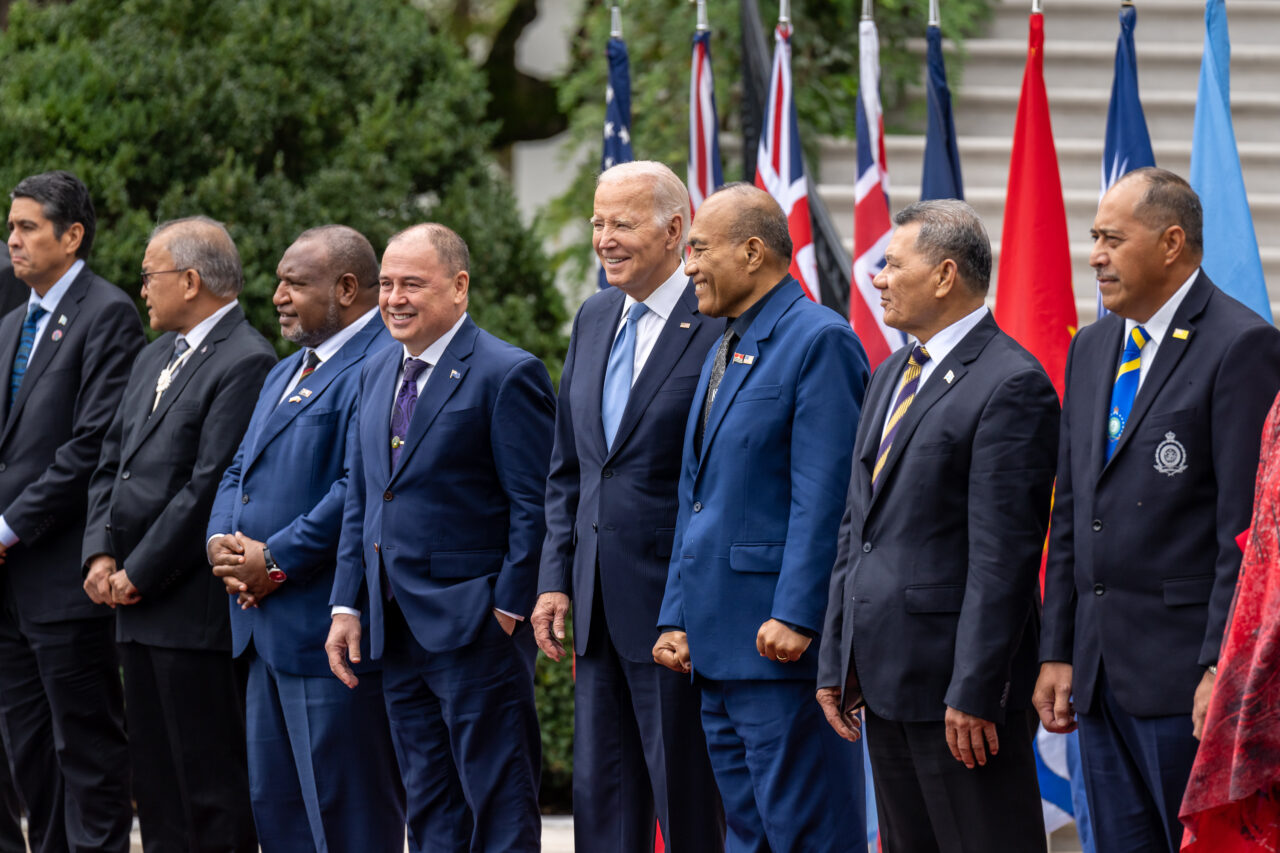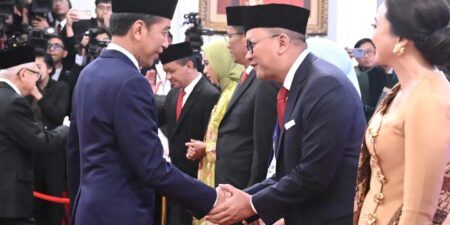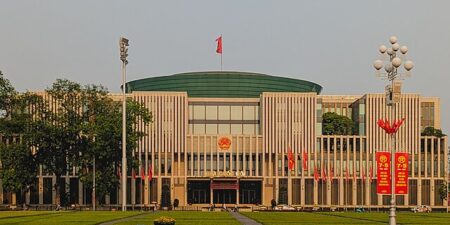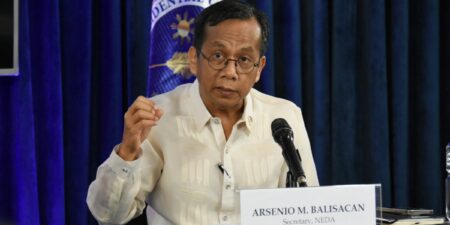The BGA Pacific team, led by Senior Adviser Amb. Ian Kemish, wrote an update to clients on the U.S.-Pacific Islands Summit.
Context
- Leaders from the Pacific Islands Forum were given red-carpet treatment in Washington for the second U.S.-Pacific Islands Summit, held from September 25-26. The summit was a show of the U.S. commitment to strengthen its Pacific partnerships, which Washington sees as vital to enhance its regional influence and counter China. Pacific Island states have emerged as key players in U.S. strategic calculations given China’s growing economic and military heft in the region.
- Washington recognizes it has overlooked the Pacific for decades since World War II, a mistake it is keen to correct in the face of geostrategic competition with China. U.S. President Joe Biden sought to demonstrate how his administration has delivered on its promises to expand diplomatic engagement, development assistance and security cooperation with the region. The next U.S.-Pacific Islands Forum Summit will be held in 2025 and will become a biannual event going forward.
- This year’s summit was an opportunity for the United States to demonstrate its expanded Pacific engagement following the promises it made to the region at the inaugural U.S.-Pacific Summit in September 2022. The United States has in the year since delivered on its promise to increase its diplomatic presence in the Pacific. It has opened embassies in the Solomon Islands and Tonga, with plans to open embassies in Kiribati and Vanuatu soon. A new regional U.S. Agency for International Development office in Fiji and a country representative office in Papua New Guinea have also been established. The United States and Papua New Guinea signed a defense cooperation agreement, which significantly enhances their security relationship, and Washington renegotiated and upgraded compacts of free association with Palau and Micronesia.
Significance
- The United States agreed to a number of initiatives to bolster its ties with the Pacific Island countries: Washington announced $200 million in funding for the Pacific Islands and the formal diplomatic recognition of the Cook Islands and Niue as sovereign, independent states — a move the United States said will deepen bonds and bolster Pacific regionalism. The United States also promised to help tackle the existential threat of climate change.
- Washington also announced funding to diversify trade and drive economic growth. This includes advancing a new microfinance facility to support smaller development projects, in particular those focusing on women, and funding to support the implementation of the Pacific Community’s Pacific Energy and Gender Strategic Action Plan.
- In a significant development in the regional security architecture, the first official partnership was announced between the Quadrilateral Security Dialogue (“Quad”) — between Australia, India, Japan and the United States — and the Pacific Island states. Partnering with the Pacific Islands states is an important security move for Western allies given the centrality of the Pacific to their China strategy. Bringing Pacific Islands into a partnership also increases the Quad’s legitimacy in the Pacific. The Quad will bring its more than $10 million maritime domain awareness initiative to the Pacific Islands.
Implications
- The United States will need to sustain its diplomatic efforts and deliver on its promises to the region to remain in the Pacific’s favor and maintain regional influence. This week’s summit was a clear sign that Washington is acting in good faith.
- Although Pacific island countries welcome U.S. reengagement, they are wary of being drawn into geopolitical tensions between the United States and China, which could undermine their own security. Pacific Island states are also intent on avoiding the militarization of the region. In general, they view China’s increased Pacific presence as an opportunity for cooperation rather than a threat. Washington must therefore address the Pacific Island states’ own concerns, such as climate change, rather than strictly pursuing its own geopolitical goals.
We will continue to keep you updated on developments in the Pacific. If you have any questions or comments, please contact BGA Senior Adviser Ambassador Ian Kemish at ikemish@bowergroupasia.com.
Best regards, BGA Pacific Team


























